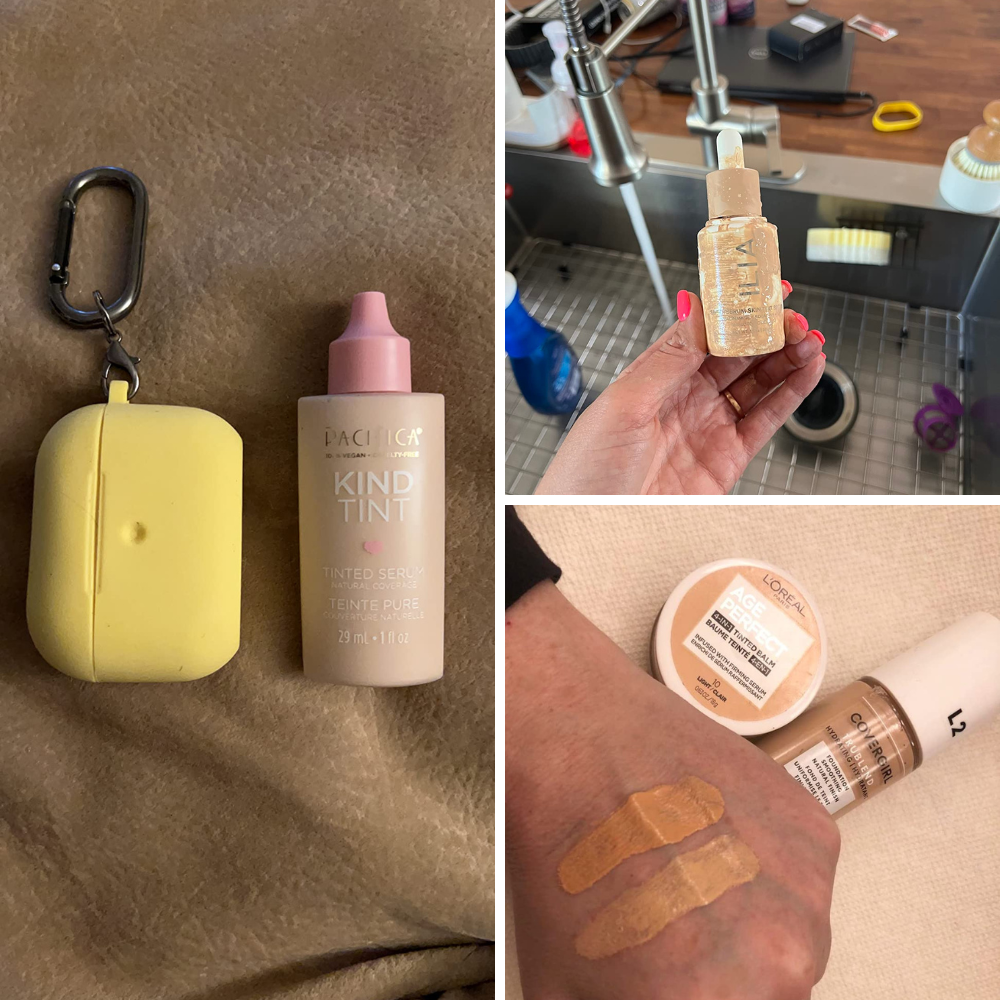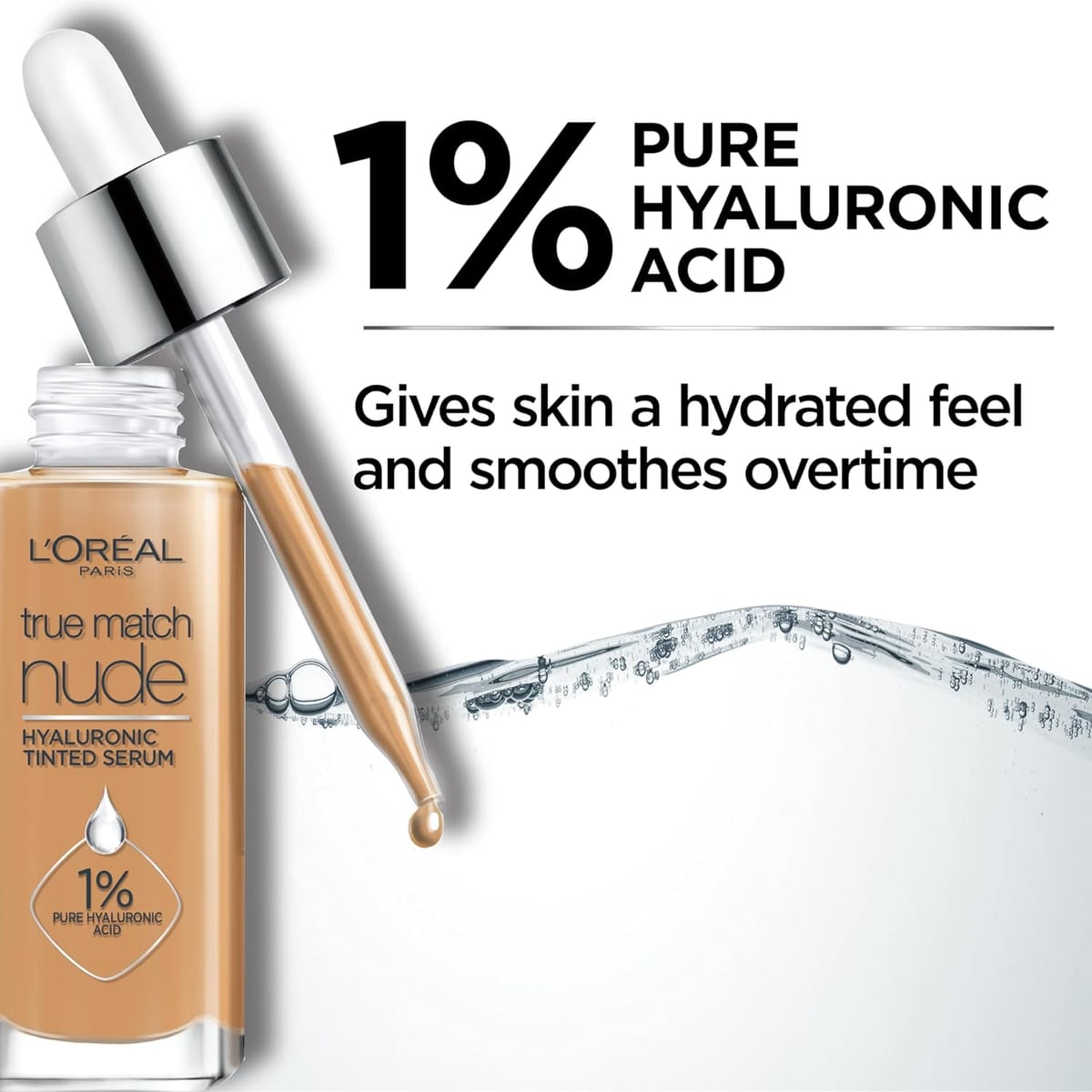Key Takeaways:
- Tinted serums can be beneficial for oily skin types, offering light coverage and skincare benefits.
- Ingredients like hyaluronic acid and aloe vera in tinted serums help maintain moisture without clogging pores.
- Choosing the right tinted serum requires attention to formula, skin compatibility, and desired finish.
Oily skin can be a challenging skin type to manage, especially when it comes to finding the right makeup products that won't exacerbate shine or clog pores. Tinted serums have emerged as a popular hybrid of skincare and makeup, but is tinted serum good for oily skin? This article delves into the suitability of tinted serums for oily skin, examining their ingredients, benefits, and how to choose the right product for a flawless finish.
Understanding Tinted Serums
Tinted serums are a fusion of skincare and makeup, designed to provide light coverage while delivering active ingredients to the skin. Unlike traditional foundations, tinted serums are super lightweight and often contain skincare ingredients like hyaluronic acid, vitamin C, and aloe vera. These ingredients not only improve skin texture but also provide a natural finish that can enhance the complexion without the heaviness of makeup.
For those with oily skin, the non-greasy formula of tinted serums can be particularly appealing. They offer a sheer touch of color to even out skin tones while allowing the skin to breathe. The hybrid formula is often non-comedogenic, meaning it's less likely to clog pores, a common concern for those with oily and acne-prone skin.
The Role of Skincare Ingredients in Tinted Serums
When it comes to oily skin, the choice of skincare ingredients in a tinted serum is crucial. Hyaluronic acid is a super hydrating component that attracts moisture without adding oiliness, making it ideal for oily skin types. Vitamin C is known for its brightening properties and can help reduce the appearance of blemishes and redness. Aloe vera, renowned for its soothing effects, can calm the skin and reduce the shine often associated with oily complexions.
These active ingredients not only improve the skin's health over time but also contribute to the serum's ability to provide a dewy finish without contributing to excess oil. The inclusion of such ingredients means that tinted serums can offer buildable coverage while acting as a treatment for the skin, making them a valuable addition to any skincare routine.
Selecting the Right Tinted Serum for Oily Skin
Choosing a tinted serum for oily skin involves considering the formula's compatibility with your skin type. Look for products that are oil-free and labeled as suitable for oily or combo skin. The shade range is also important; a good tinted serum should offer a variety of shades to match different skin tones, from fair skin to dark.
The finish of the serum is another aspect to consider. Those with oily skin might prefer a matte or powdery finish to help control shine throughout the day. However, some may still enjoy a natural or dewy finish, provided the formula is designed to maintain a balance and prevent the skin from looking greasy.
Application Tips for Oily Skin
Applying tinted serum to oily skin requires a few drops to achieve a flawless finish. Start with clean skin and use your fingers or a brush to blend the product evenly across the face, paying special attention to areas with imperfections or redness. The lightweight nature of tinted serums allows for easy touch-ups throughout the day, without the need for heavy layers or a cakey appearance.
For those with oily skin, setting the serum with a light dusting of translucent powder can help control shine and extend the wear test of the product. This step ensures that the natural skin remains the star, with the tinted serum providing a subtle enhancement rather than a mask-like coverage.
The Compatibility of Tinted Serums with Acne-Prone Skin
When considering tinted serums for acne-prone skin, it's essential to scrutinize the formulation. Products like hyaluronic tinted serums are often non-comedogenic, meaning they are less likely to clog pores—a common concern for those with acne issues. The hyaluronic acid works to hydrate the skin without adding excess oil, which can be beneficial for maintaining a balanced complexion. Additionally, some tinted serums are infused with ingredients that have anti-inflammatory properties, helping to soothe the skin and reduce the appearance of redness and blemishes.
However, individuals with acne-prone skin must read labels and look for products that are specifically designed for their skin type. Tinted serums that contain salicylic acid or tea tree oil can be particularly helpful, as they target acne directly. It's also advisable to seek out honest reviews from other users with similar skin concerns. These reviews can provide insight into how the product performs on acne-prone skin, including any potential for causing breakouts or effectively concealing imperfections on the chin, cheeks, and other areas prone to acne.
Tinted Serums and Sun Exposure: A Protective Measure?
Tinted serums can offer an additional layer of protection against the sun's harmful rays, especially when they include SPF in their formulation. This dual-purpose product not only helps in evening out the skin tone but also shields the skin from UV damage, which is particularly important during warm, sunny days. Some tinted moisturizers and serums are enriched with antioxidants like vitamins C and E, which can further defend the skin against environmental stressors. This makes them an excellent choice for those seeking a lightweight, protective option that also enhances their complexion.
Nevertheless, it's important to remember that the SPF in tinted serums may not be sufficient for prolonged sun exposure. For optimal protection, dermatologists often recommend using a separate, broad-spectrum sunscreen with a higher SPF. Additionally, for those who spend a significant amount of time outdoors, reapplication is key. Tinted serums can be convenient for touch-ups throughout the day, ensuring that the remaining product continues to provide both coverage and sun protection. This is especially useful for areas like the nose and forehead, which are more exposed and prone to sunburn.
The Benefits of Tinted Serums for Different Skin Types
While the focus is on oily skin, it's worth noting that tinted serums can be beneficial for all skin types. Dry skin can benefit from the super hydrating properties of hyaluronic acid, while sensitive skin will appreciate the gentle formulation of many tinted serums. Normal skin types can enjoy the versatility of these products, using them for both light coverage and a boost of skincare benefits.
The key is to select a tinted serum that is formulated for your specific skin concerns. Whether it's controlling oil, adding moisture, or reducing redness, there's likely a tinted serum out there that can meet your needs while providing a natural, skin-like finish.
The Impact of Tinted Serums on Skin Texture
One of the standout features of tinted serums is their ability to improve skin texture over time. The active ingredients work to refine pores, smooth out fine lines, and improve overall skin health. For oily skin types, this means that with regular use, a tinted serum can help manage oil production and reduce the likelihood of acne breakouts.
The light coverage of tinted serums also means that they won't settle into pores or fine lines, making them an excellent option for those concerned about their skin texture. The result is a more even, smooth complexion that looks and feels healthier.
The Evolution of Tinted Serums in the Beauty Industry
Tinted serums are a relatively new addition to the beauty industry, but they have quickly gained popularity due to their multifunctional benefits. They represent a shift towards products that not only enhance appearance but also contribute to skin health. This evolution reflects a growing demand for makeup that acts as an extension of skincare, providing both immediate and long-term benefits.
As the beauty industry continues to innovate, we can expect to see more products like tinted serums that combine the best of both worlds. For those with oily skin, this means more options that cater to their specific needs without compromising on quality or performance.
Real-Life Success Stories with Tinted Serums
Many individuals with oily skin have shared honest reviews and success stories about their experiences with tinted serums. From those who love the natural finish to those who appreciate the convenience of a hybrid formula, the feedback is overwhelmingly positive. Case studies show that when used correctly, tinted serums can provide a flawless finish that lasts all day, even on oily skin.
These testimonials often highlight the importance of finding the right product for your skin type and the transformative effects that can occur when makeup and skincare are combined. The personal accounts serve as practical examples of how tinted serums can be integrated into a daily routine for a more radiant and healthy complexion.


Can tinted serums replace my foundation if I have oily skin?
Tinted serums provide light to buildable coverage and can replace foundation for those seeking a more natural look. However, if you require full coverage for blemishes or imperfections, you may still need to use foundation or concealer in conjunction with a tinted serum.
How often should I apply tinted serum if I have oily skin?
Tinted serums can be applied daily as part of your makeup routine. They are designed to be lightweight and suitable for everyday wear, even for oily skin types.
Will tinted serums make my oily skin look shinier?
Not necessarily. Many tinted serums are formulated with a matte or natural finish specifically for oily skin. They aim to provide a balanced look without adding extra shine. Setting the serum with a translucent powder can also help control any additional shine throughout the day.

Tinted serums offer a promising solution for individuals with oily skin seeking light coverage and skincare benefits in one product. With ingredients like hyaluronic acid, vitamin C, and aloe vera, these serums can hydrate and treat the skin without adding oiliness or clogging pores. When selecting a tinted serum, it's important to consider the formula, skin compatibility, and desired finish. Application techniques and real-life success stories further demonstrate the effectiveness of tinted serums for oily skin. As the beauty industry evolves, tinted serums are likely to become a staple for those looking for multifunctional products that support skin health and provide a natural, flawless finish.










